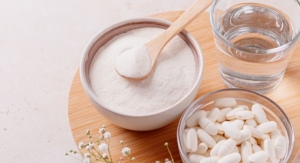Dr. Anurag Pande, Vice President, Scientific Affairs, Sabinsa Corp.11.01.12
India is one of the largest suppliers of herbal extracts and raw material for the dietary supplement market worldwide. However, even though it holds such a strong position as a supplier, the nutraceutical market in India is still quite nascent. There are various reasons for the slow start or poor development of the nutraceutical market, which this article will address on the road to the future.
The term nutraceutical is quite young, with some sources attributing the coining of the term to Stephen De Felice in 1979. The nomenclature and regulatory classification of nutraceuticals may vary from country to country, although generally they are treated as being a class of foods.
The Foods Safety and Standards Acts (FSSA) was introduced in India in 2006. This act replaced the Prevention of Food Adulteration (PFA) Act of 1954. The Food Safety and Standards Authority of India Regulations and Rules posted the acts in the Gazette of India, the authorized agents of Government of India publications, in 2011. However, the rules are still not in force and the government is still seeking suggestions on the draft. The idea behind this act was to consolidate the laws relating to food by regulating the manufacture, storage, distribution, sale and import of food and food articles.
For the first time, this law recognizes the term “nutraceuticals,” or “functional foods,” defined as foods that are specially processed or formulated to satisfy particular dietary requirements that exist because of particular physical or physiological conditions or specific diseases and disorders.
The law also states that such categories contain the following:
· Plants or botanicals or their parts in form of powder or extracts;
· Minerals, vitamins, proteins, metals, their compounds, amino acids or enzymes;
· Substance from animal origin;
· Dietary substance for use by human beings to supplement the diet by increasing the total dietary intake.
The law is very similar to the Dietary Supplement Health and Education Act (DSHEA) of 1994 that regulates dietary supplements and health claims in the U.S. Indian law states nutraceuticals, food for special dietary uses, functional foods or health supplements cannot claim to cure or mitigate any specific disease, disorder or condition except for certain health benefits or such promotion claims as may be permitted by regulations under this act.
By recognizing the term nutraceutical for functional foods and dietary supplements, this act opens a new chapter in the Indian supplement market.
India’s Market & Health
The global nutraceutical market in 2008 was estimated to be $117 billion, of which India’s share was only 0.9%. The global market is estimated to reach $177 billion by next year, growing at a healthy CAGR of 7%. With increasing penetration of preventative healthcare products in the Indian market, growing health awareness, higher disposable income and other factors, the Indian nutraceutical industry has shown a promising CAGR of 18% in the last three years. According to one report, the total Indian nutraceutical market in 2015 is expected to be roughly $5 billion. Fast moving consumer goods (FMCG) companies, and pharmaceutical companies are major players in Indian nutraceutical market.
The world’s largest democracy, India has diverse problems when it comes to the healthcare sector. On one hand, the health problems related to malnutrition are still widespread. In India, nearly 20% of the adult population and 44% of young children under the age of five were found to be undernourished, according to 2009 Ernst & Young data). On the other hand, a sizable population has higher than recommended calories intake, but often inadequate nutrient intake, and are hence considered to be “overfed but undernourished.”
Today diabetes rates remain high. According to International Diabetes Federation reports, there were more than 55 million people with diabetes in 2010. At this rate, by 2025 one out of every two diabetics in the world will be Indian. Similarly, with changing dietary patterns, there has been a surge in the number of people suffering from obesity. This trend is more worrisome in school-aged children. In fact, according to a study published in 2011, more than 15 million children would be overweight and 4 million abdominally obese in urban India.
Growth Factors
With the major nutraceutical markets like Japan and the U.S. reaching maturity, manufacturers are looking at India with great interest. With the world’s second largest population, increasing disposable income and greater health awareness, India is becoming a major market for nutritional companies. There is a definite shift in the Indian health system. What was until now based on sick care, has begun to move toward preventive care due to rising costs. With growing penetration of media, the accessibility and awareness of preventive healthcare products has definitely increased.
Knowledge of Ayurveda, the traditional medical modality in India for several thousand years, is also one of the growth factors. Though the traditional medicines in Ayurveda, and other ancient medical philosophies, Unani and Siddhi, have been left out of the definition of nutraceuticals in the Food Safety and Standards Act, these traditional systems can play a substantial role in the nutraceutical market. Customized formulations using conventional delivery systems (capsules, tablets, gels, syrups) using Ayurvedic herbs and supplements can be one way manufacturers may provide consumers the best of both the worlds. Because of consumer’s cultural familiarity with these medical systems, they are predisposed to accept and trust herbal and food based remedies.
India’s Future
At present, functional foods have the largest share of the Indian nutraceutical market, followed by dietary supplements. This is an interesting trend that will drive the market for fortified foods and probiotics. With increasing occurrence of obesity in urban Indians, weight management products will also be in high demand. Similarly anti-diabetic, blood glucose balance and cholesterol management products will become popular.
Sports supplements such as rehydration drinks and whey protein supplements represent another major market. The recent successful Indian launch of SamiDirect’s LeanGard protein mix, which contains a unique “digestive intolerance blend” to increase the digestibility of whey protein, is one example of an emerging trend. With the current health scenario, dietary supplements designed to provide digestive support, joint support and cardiovascular health will also do well in the future.
With the opening of the Indian market to foreign brands, there will be healthy competition. New product innovations, strict quality control and proper labeling and advertising can help consumers choose the right products. Currently, the FSSA does not allow health claims on functional foods, supplements or nutraceuticals. However, it will be important to see if the Indian regulatory body will allow health claims based on scientific data for nutraceuticals as the market grows. This could follow the same line as Japan’s Food for Specified Health Uses (FOSHU), which is composed of functional ingredients that affect the structure/function of the body and are used to maintain specific health conditions.
Overall, the Indian nutraceutical market is emerging with strong growth potential. With escalating health awareness, and the shift toward preventative health care and increased regulatory clarity, India’s future looks promising, for both manufacturers and consumers.
The term nutraceutical is quite young, with some sources attributing the coining of the term to Stephen De Felice in 1979. The nomenclature and regulatory classification of nutraceuticals may vary from country to country, although generally they are treated as being a class of foods.
The Foods Safety and Standards Acts (FSSA) was introduced in India in 2006. This act replaced the Prevention of Food Adulteration (PFA) Act of 1954. The Food Safety and Standards Authority of India Regulations and Rules posted the acts in the Gazette of India, the authorized agents of Government of India publications, in 2011. However, the rules are still not in force and the government is still seeking suggestions on the draft. The idea behind this act was to consolidate the laws relating to food by regulating the manufacture, storage, distribution, sale and import of food and food articles.
For the first time, this law recognizes the term “nutraceuticals,” or “functional foods,” defined as foods that are specially processed or formulated to satisfy particular dietary requirements that exist because of particular physical or physiological conditions or specific diseases and disorders.
The law also states that such categories contain the following:
· Plants or botanicals or their parts in form of powder or extracts;
· Minerals, vitamins, proteins, metals, their compounds, amino acids or enzymes;
· Substance from animal origin;
· Dietary substance for use by human beings to supplement the diet by increasing the total dietary intake.
The law is very similar to the Dietary Supplement Health and Education Act (DSHEA) of 1994 that regulates dietary supplements and health claims in the U.S. Indian law states nutraceuticals, food for special dietary uses, functional foods or health supplements cannot claim to cure or mitigate any specific disease, disorder or condition except for certain health benefits or such promotion claims as may be permitted by regulations under this act.
By recognizing the term nutraceutical for functional foods and dietary supplements, this act opens a new chapter in the Indian supplement market.
India’s Market & Health
The global nutraceutical market in 2008 was estimated to be $117 billion, of which India’s share was only 0.9%. The global market is estimated to reach $177 billion by next year, growing at a healthy CAGR of 7%. With increasing penetration of preventative healthcare products in the Indian market, growing health awareness, higher disposable income and other factors, the Indian nutraceutical industry has shown a promising CAGR of 18% in the last three years. According to one report, the total Indian nutraceutical market in 2015 is expected to be roughly $5 billion. Fast moving consumer goods (FMCG) companies, and pharmaceutical companies are major players in Indian nutraceutical market.
The world’s largest democracy, India has diverse problems when it comes to the healthcare sector. On one hand, the health problems related to malnutrition are still widespread. In India, nearly 20% of the adult population and 44% of young children under the age of five were found to be undernourished, according to 2009 Ernst & Young data). On the other hand, a sizable population has higher than recommended calories intake, but often inadequate nutrient intake, and are hence considered to be “overfed but undernourished.”
Today diabetes rates remain high. According to International Diabetes Federation reports, there were more than 55 million people with diabetes in 2010. At this rate, by 2025 one out of every two diabetics in the world will be Indian. Similarly, with changing dietary patterns, there has been a surge in the number of people suffering from obesity. This trend is more worrisome in school-aged children. In fact, according to a study published in 2011, more than 15 million children would be overweight and 4 million abdominally obese in urban India.
Growth Factors
With the major nutraceutical markets like Japan and the U.S. reaching maturity, manufacturers are looking at India with great interest. With the world’s second largest population, increasing disposable income and greater health awareness, India is becoming a major market for nutritional companies. There is a definite shift in the Indian health system. What was until now based on sick care, has begun to move toward preventive care due to rising costs. With growing penetration of media, the accessibility and awareness of preventive healthcare products has definitely increased.
Knowledge of Ayurveda, the traditional medical modality in India for several thousand years, is also one of the growth factors. Though the traditional medicines in Ayurveda, and other ancient medical philosophies, Unani and Siddhi, have been left out of the definition of nutraceuticals in the Food Safety and Standards Act, these traditional systems can play a substantial role in the nutraceutical market. Customized formulations using conventional delivery systems (capsules, tablets, gels, syrups) using Ayurvedic herbs and supplements can be one way manufacturers may provide consumers the best of both the worlds. Because of consumer’s cultural familiarity with these medical systems, they are predisposed to accept and trust herbal and food based remedies.
India’s Future
At present, functional foods have the largest share of the Indian nutraceutical market, followed by dietary supplements. This is an interesting trend that will drive the market for fortified foods and probiotics. With increasing occurrence of obesity in urban Indians, weight management products will also be in high demand. Similarly anti-diabetic, blood glucose balance and cholesterol management products will become popular.
Sports supplements such as rehydration drinks and whey protein supplements represent another major market. The recent successful Indian launch of SamiDirect’s LeanGard protein mix, which contains a unique “digestive intolerance blend” to increase the digestibility of whey protein, is one example of an emerging trend. With the current health scenario, dietary supplements designed to provide digestive support, joint support and cardiovascular health will also do well in the future.
With the opening of the Indian market to foreign brands, there will be healthy competition. New product innovations, strict quality control and proper labeling and advertising can help consumers choose the right products. Currently, the FSSA does not allow health claims on functional foods, supplements or nutraceuticals. However, it will be important to see if the Indian regulatory body will allow health claims based on scientific data for nutraceuticals as the market grows. This could follow the same line as Japan’s Food for Specified Health Uses (FOSHU), which is composed of functional ingredients that affect the structure/function of the body and are used to maintain specific health conditions.
Overall, the Indian nutraceutical market is emerging with strong growth potential. With escalating health awareness, and the shift toward preventative health care and increased regulatory clarity, India’s future looks promising, for both manufacturers and consumers.



























